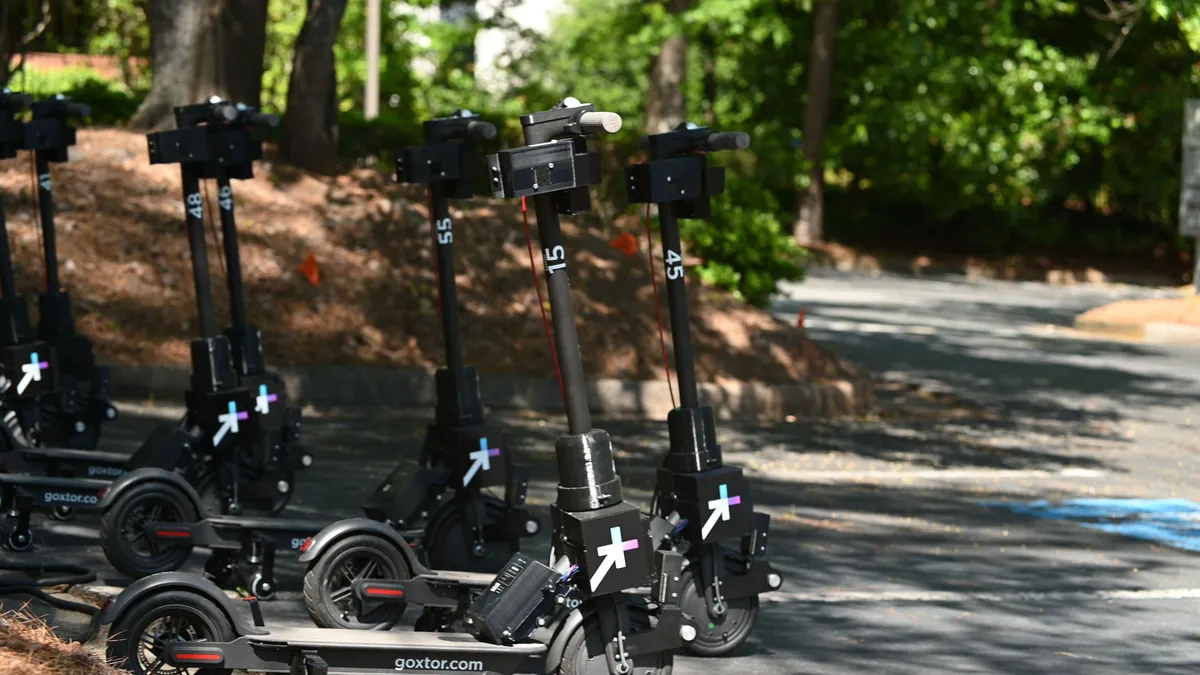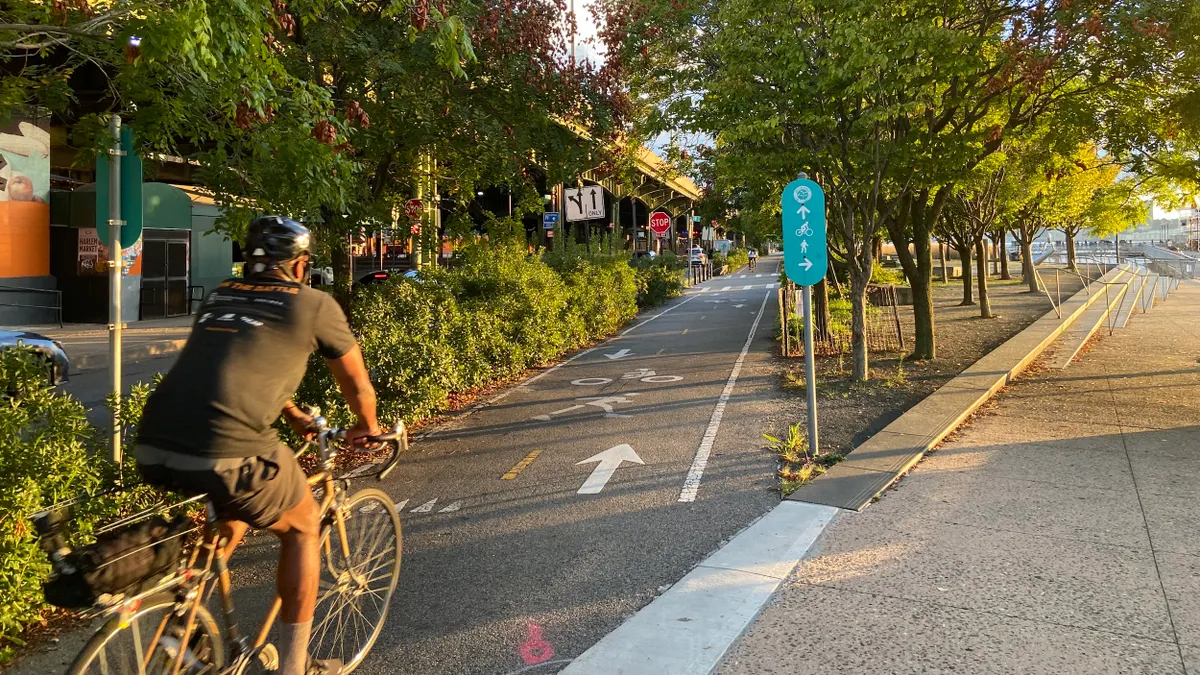Editor's note: This story is part of the Smart Cities Dive Outlook on 2021, a series on the trends that will shape the industry in 2021. For a look at the business trends affecting other industries, see the Dive Outlook on 2021.
The past year brought many new, unexpected challenges for mobility companies within the smart city space. Prominent micromobility powerhouses like Bird and Lime, for instance, laid off significant swaths of their workforce while ride-hailing companies saw unprecedented declines in bookings.
But despite the year's setbacks, 2020 also ushered in new areas ripe for growth.
Smart Cities Dive has compiled a list of seven startups, based on our reporting and conversations with industry leaders, that represent compelling solutions to the mobility challenges that cities will likely encounter in 2021.
Tortoise
Micromobility startup Tortoise offers a "hybrid" solution for scooters to be repositioned via autonomy and teleoperations, aiming to alleviate cities of issues like improperly parked scooters and grocery delivery congestion.
The startup, co-founded by Uber alum Dmitry Shevelenko, partnered with e-scooter operator GoX in May, launching a public pilot of the world’s first teleoperated fleet in Peachtree Corners, GA. The company also recently applied its tech to delivery carts, partnering with online grocery platform Self Point to deliver goods to local consumers with the remote-controlled carts, TechCrunch reports.
Tortoise + @axlehire making meal kit delivery magical! pic.twitter.com/W8Ngnb8Gga
— Tortoise (@TortoiseHQ) November 28, 2020
Populus
Micromobility data management platform Populus helps cities and private operators make data-informed decisions to improve the management of their streets, policies and services.
Though the company has been around since 2017 and is already used in more than 70 cities, they helped local leaders adapt to new pandemic-fueled changes in 2020.
The company unveiled a "Micromobility Data Sharing and Cities" guide in the spring to help the public and private sectors share data and improve curb management, and they launched an Open Streets initiative in April to decision-makers manage new open-street policies.
Vade
Vade, founded by a group of college students from the University of North Carolina at Chapel Hill and North Carolina State University, has a goal to become "the largest source of real-time curb data."
The startup aims to help localities manage their curbside and parking woes via IoT cameras that use solar power and cellular connectivity to capture images, gaining insight into how the space is used. Vade raised $428,000 in seed funding in 2020, according to CrunchBase, and has plans to launch in a number of cities in 2021, WRALTechWire reports.
Coord
From Seattle to Pittsburgh, Coord has helped a number of cities manage over 4.9 million curb spaces across the country.
Backed by Alphabet-owned Sidewalk Labs, the platform provides cities with a "detailed digital view" into how their curbs are being used, helping local leaders mitigate three urban pain points: safety, congestion and revenue-generation.
The company raised $5 million in a Series A round led by Alliance Ventures in 2018, with big plans for 2021 as they aim to expand to over 100 global cities by year's end.
Smart Zones make curb and alley access more transparent, flexible & productive. This week they go into action in downtown @CityofAspen #urbanplanning #mobility https://t.co/J0XDX4Ydvx pic.twitter.com/t2uf8zg0zf
— Coord (@coordcity) November 4, 2020
Ridepanda
Ridepanda, founded by former Lime employee Chinmay Malaviya and former Scoot and Bird employee Charlie Depman, is designed to support the mobility industry's push toward electrification.
The startup provides a "first-of-its-kind" online marketplace for mopeds, e-bikes and e-scooters, sharing details about the various devices based on factors like durability, safety and sustainability. The company also now offers monthly e-bike subscriptions.
Mobilyze
Mobilyze, founded by a former MIT professor and member of the recent UrbanX cohort, provides a platform for city managers, utilities, automakers and more to help identify which households are most likely to adopt electric vehicles (EVs).
The Cambridge, MA-based company and it’s framework can help inform decisions about EV charging investments at a time when many cities are looking to electrification.
WhereIsMyTransport
With offices in London and Cape Town, WhereIsMyTransport maps formal and informal transportation networks in some of the world's largest low- and middle-income cities.
Informally-run transit like tuk-tuks, for instance, are responsible for 80% of the transportation across the globe. And the company, which raised $7.5 million in a Series A funding round led by Liil Ventures in February 2020, keeps track of such networks to help make public transit offerings easier to use and more accessible.
Looking ahead, the company plans to complete maps of the informal and formal public transit networks among 30 of the developing world's biggest cities by the end of 2023.



















